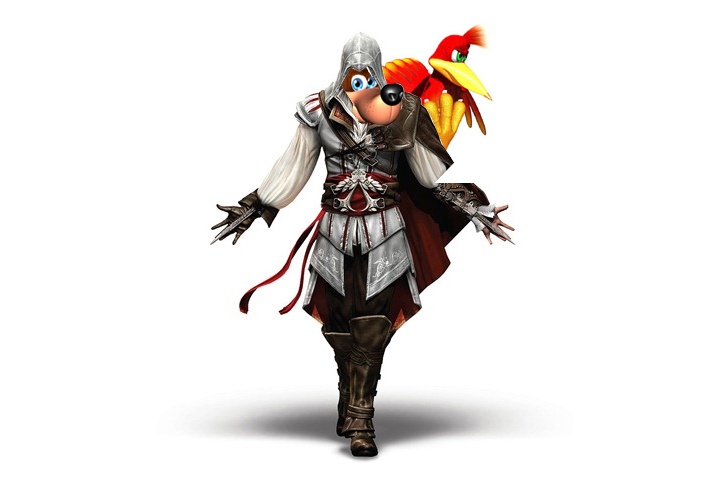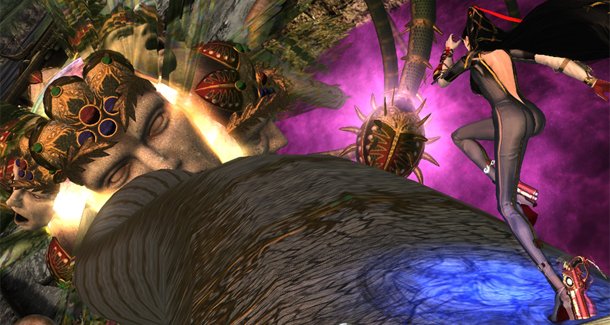Last updated on July 4, 2016
The soul of the sluggard craves and gets nothing, but the soul of the diligent is made fat.
– Proverbs 13:4
Working my way through Assassin’s Creed: Revelations, I find myself enjoying it a great deal more than Brotherhood. Whether for reasons of setting or my lack of multiplayer time, I enjoy Constantinople infinitely more than Rome. Tiny, tiny improvements make the experience just a little more enjoyable, although definitely not bringing the series to a new level like Assassin’s Creed II. The series, due to its yearly update schedule, adopts the iterative design of Western games to a tee.
However, as I built my Assassin’s Guild, set den masters over my Assassin Lairs, and took over other cities through a host of menu screen not unlike a Koei strategy game, I asked myself: why am I doing this? Certainly, money’s much scarcer in Revelations than previous game (hence the use of the aforementioned systems), but why? Why all these weird little additions? Why tower defense – does an Assassin’s Creed game need a mediocre version of an already established gaming trend? Why does an action game force me into multiple menus to make money? Why do I have to run around and invest money into shops? What’s with the collecting of useless trinkets like Animus Fragments – am I suppsoed to scour Constantinople as if I’m playing Banjo-Kazooie? Why the Prince of Persia style platforming segments that, really, only require you to hold forward and aim yourself in the right direction to succeed – Ubisoft Montreal’s former work required some skill, right? Why do I need to craft these bombs through yet more menus? What about this combat system where, even with its complications, I can’t die unless I’m not paying attention?

Now, granted, none of these things strike me as evil, bad, or lacking entertainment value. In fact, some of them integrate well into Assassin’s Creed systems – namely, killing dudes, running around, and hiding in plain sight. How could you say that they’re not fun? The lack of interest I have in most tasks the game presents rests firmly in their scatterbrained nature. It’s all over the place. Or, you might say, Assassin’s Creed gives you lots and lots of stuff to do. That stuff, though, isn’t intrinsically satisfying; they’re distractions. They are ways to prolong a game without producing actual content that forces the player to learn the game’s systems. Instead, they give you hundreds of little, unnecessary details that add to a supposed “replay value”.
I get it: the Assassin’s Creed brand equals less a masterpiece of gaming than a product meant to sell to the masses. After all, even the less-than-well received Revelations was the FOURTH best-selling game of 2011 with over seven million copies sold. However, such a problem isn’t limited to Ubisoft’s flagship series. Anywhere you find an open world game, it’s bound to have these little game mechanic vignettes that, from my view, detract from the game’s internal structure. It’s like sewing new body parts on a new human being to “improve” them – sure, it sounds like it might work if you have zero understanding of human anatomy, but no nerve endings connect to the new limbs. Thus, these new appendages flail and sway uselessly on the body without adding much of value.

That’s not just the case with Assassin’s Creed, however. Most, if not all, open world games released in the last few years display this issue – Grand Theft Auto (the pioneer of this problem), Yakuza, Sleeping Dogs, the Arkham Batman series, and I’m sure hundreds more fall into the same trap. I’m seriously considering the score I gave Arkham City. It’s mostly the same game, except with a far less open city and less stuff to do. The only reason it succeeds in most people’s minds is playing like Batman. Yes, it’s significantly better in the Predator stealth segments, but it’s not a substantially better game than any of the Assassin’s Creed series (save the first one – all can agree that it’s a bomb). Arkham City’s combat flows better, but it also has the same problem – it’s too easy. The saving grace comes from its “Hard” difficulty, but even that’s not hard – it remove the icons over the enemy heads that tells you to counter, but AC already does the same thing! And Batman has much less stuff to do.
Again, this all comes from the “more, more, more” mentality that has gripped the game industry. They certainly give you more for your money, but a lot less satisfying in the end than a focused, tightly balanced linear experience (not to impugn open world RPGs; that’s a different matter entirely). And these little mini-games aren’t cheap! Many of them re-use assets, sure, but then you create a new set of rules, create the context where those rules play out, and then an army of programs need to place it into the game. It’s a game of mass appeal and packaging – like politics, actually! If they cast their net wide, they’re bound to get even those who don’t play many video games. In a recent Eurogamer article, we can see this is the thinking behind it all. According to Alex Hutchinson, Assassin’s Creed creative director:
There are lots of ways to look at this. I assume the Eurogamer audience is a hardcore audience who buy lots of games. But we know statistically that most people buy 2.7 games per console.
I used to work at Maxis and know that a big percentage of the people who bought the Sims, just bought the Sims. Any game that sells over a couple of million copies is in the mass market and the mass market is probably only buying a few franchises. For them, there’s an argument that once a year is not often enough. They have to wait eleven months for the next game!
It’s about keeping your franchise alive in the eyes of normal people, not just for hardcore gamers. They know it’s coming out, they know it’s for Christmas. And it’s not just us, it’s Madden, it’s FIFA, it’s Call of Duty doing this too.
From a business perspective, this rings absolutely true. Branding remains a part of the gaming business and even its masterpieces (video game art, yeah!). You don’t receive accolades for a one-shot title in this arena; usually, the developers hearken to their original brands for good (Nintendo) or for ill (Square-Enix). Still, there’s a case to be made for some game focus.
Imagine the millions of dollars crafted into one exemplary, exciting, and challenging experience. Imagine a title like Bayonetta and a developer like Platinum Games with more money at its disposal. Sure, it’s amazing how great Bayonetta is, but it could even be better! That’s what money does for any game developer. Yet, open worlds throw this money away in “atmosphere”. Let me tell you, Doom 3’s lack of lighting and Final Fantasy’s music do more for the atmosphere than any empty city (LA Noire!). Imagine, half the time you never even enter a building unless it serves a game purpose – what’s with the ten thousand other empty buildings? Heck, you don’t need invisible walls to restrict access, but you sure don’t need a digital recreation of a real-life city to make us feel like we’re in a new world. This works fine in Assassin’s Creed because you can find stuff as you bound across the rooftops; most open world games don’t have this same acrobatic luxury.

So, what shall they do, then? I wouldn’t say a total abandonment of the open world is necessary. Rather, the open world needs, nay, demands integrations into the core game mechanics. Make traversal in this grand world worthwhile, and not just another notch on the bullet list of “gameplay features” on the back of the box. I hate idling around in an interesting world with little snippets of great game strewn about its confines. Don’t make me an idling busy body in the game; I do that enough in real life! As 2 Thessalonians 3 tells us:
6 Now we command you, brothers, in the name of our Lord Jesus Christ, that you keep away from any brother who is walking in idleness and not in accord with the tradition that you received from us. 7 For you yourselves know how you ought to imitate us, because we were not idle when we were with you, 8 nor did we eat anyone’s bread without paying for it, but with toil and labor we worked night and day, that we might not be a burden to any of you. 9 It was not because we do not have that right, but to give you in ourselves an example to imitate. 10 For even when we were with you, we would give you this command: If anyone is not willing to work, let him not eat. 11 For we hear that some among you walk in idleness, not busy at work, but busybodies. 12 Now such persons we command and encourage in the Lord Jesus Christ to do their work quietly and to earn their own living.
It’s time for a revival of the Apostolic Mandate, I think – just applied to video games. Make the tasks interesting and engaging – Revelations seems a good start, but it needs more focus and less flailing for market-driven, focus-group tested mini-games.
